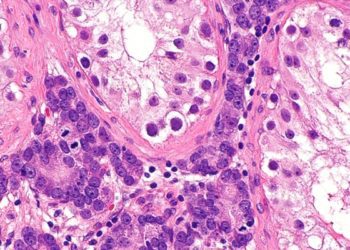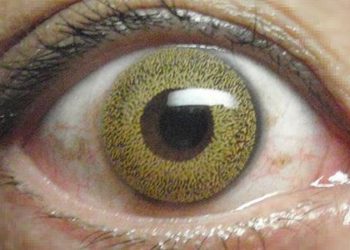No benefit in prolonged anticoagulation in cancer patients without residual venous thrombosis
1. Cancer patients treated with 6 months of low molecular weight heparin (LMWH) for first-time DVT with no residual clot do not benefit from an additional 6 months of treatment with LMWH.
Evidence Rating Level: 1 (Excellent)
Study Rundown: Due to the hypercoagulable state associated with malignancy, cancer patients are at high risk for thrombotic events such as deep venous thrombosis (DVT). Although the current standard of DVT prophylaxis for cancer patients is 6 months of low-molecular weight heparin (LMWH), residual vein thrombosis (RVT) may remain after therapy. There is currently minimal evidence for the management of cancer patients with RVT following standard anticoagulation. The purpose of this trial was to determine the risk of future VTE in patients with and without RVT as well as to evaluate the effects of an additional 6 months of LMWH for patients with RVT.
The trial recruited over 340 cancer patients with a previous history of DVT. The trial randomized those with RVT to either receive additional 6 months of LMWH or discontinue their anticoagulation. After 12 months follow-up, the authors found that patients without RVT following initial LMWH therapy were at low risk for recurrent VTE. For patients with RVT, continuation of LMWH for an additional 6 months did not significantly reduce the risk of recurrent VTE compared to those who were discontinued from the LMWH, although there was a trend favoring the anticoagulation group. The results of this trial supports the conclusion that cancer patients without RVT after 6 months of LMWH are at low risk of developing VTE. However, the study is underpowered with regards to patients with RVT and the benefit of additional anticoagulation.
Click to read the study in Journal of Clinical Oncology
Click to read the accompanying editorial in Journal of Clinical Oncology
Relevant Reading: Venous thromboembolism and cancer: risks and outcomes (Circulation)
In-Depth [randomized controlled trial]: The authors of this study enrolled a total of 347 patients with active cancer and a first-time event of DVT who were treated with LMWH for 6 months. Patients with residual venous thrombosis (RVT) were then randomized to continue LMWH (n = 119) for an additional 6 months or to discontinue it (n=123), while patients without RVT stopped LMWH (n = 105). The primary end point was recurrent venous thromboembolism within 1 year following discontinuation of LMWH, while the secondary end point was major bleeding. At the conclusion of the trial, patients without RVT had a significantly lower risk of recurrent VTE compared to patients with RVT at baseline (HR: 6.0; 95% CI: 1.7 – 21.2; p < 0.005). In patients with RVT, the use of LMWH was not associated with reduced VTE current compared to patients who discontinued anticoagulation (HR: 1.37; 95% CI: 0.7-2.5; p = 0.311). There was no significant difference in major bleeding events in either group with RVT (HR: 3.78; 95% CI: 0.77 to 18.58; p = 0.102).
More from this author: Rituximab linked with reduced chronic immune disease following stem cell transplantation, High-dose prophylaxis for hemophilia increases costs with minimal benefit, Ambrisentan found ineffective against idiopathic pulmonary fibrosis
Image: PD
©2012-2014 2minutemedicine.com. All rights reserved. No works may be reproduced without expressed written consent from 2minutemedicine.com. Disclaimer: We present factual information directly from peer reviewed medical journals. No post should be construed as medical advice and is not intended as such by the authors, editors, staff or by 2minutemedicine.com. PLEASE SEE A HEALTHCARE PROVIDER IN YOUR AREA IF YOU SEEK MEDICAL ADVICE OF ANY SORT.




![2MM: AI Roundup- AI Cancer Test, Smarter Hospitals, Faster Drug Discovery, and Mental Health Tech [May 2nd, 2025]](https://www.2minutemedicine.com/wp-content/uploads/2025/05/Untitled-design-350x250.png)




